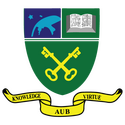Md. Abdul Matin1, Md. Mahmudul Hasan2, Parul Parvin3
1 Advisor, Department of Information Science & Library Management, Asian University of Bangladesh.
2,3 Lecturer, Department of Information Science & Library Management, Asian University of Bangladesh, Dhaka, Bangladesh.
Published: July 2025 | Field: Library Science & Information Management
Abstract
Executive Summary: Without the establishment of proper libraries in the educational institutions and in the communities as a whole for ensuring quality education and creating good citizens, no nation can achieve sustainable development. Keeping this view in mind, AUB authority has approved the research project, entitled “Library and Information Services of Selected School, College, and Madrasah Libraries of Ashulia, Savar Area: An Empirical Study.” The purpose of the empirical study is to explore the existing status of library information services in 50 schools, colleges, and madrasah libraries of the Ashulia-Savar area; compare them with the government’s requirements and fixed standards; determine the gaps; and make recommendations to improve. The study provides a picture of the selected 50 (fifty) (school 15, college 25, and madrasah 10) libraries of the said suburban area of Dhaka district, which is situated to the northwest of the capital city of Dhaka (24 km). The population consisted of 300 individuals, including 150 students, 100 teachers, and 50 librarians. Following the analysis of the collected data the researchers have made recommendations on the subject so that all concerned particularly the decision-makers, can get appropriate clues to take proper decisions to improve the libraries of schools, colleges, and madrasah libraries of Bangladesh, which certainly shall help ensure quality education and national sustainable development and bring Bangladesh’s education to a good position in global rankings. The study has been conducted based on primary sources. Data collection is done through structured questionnaires and face-to-face interviews. Secondary data have also been used in some cases in limited forms. The study provides a picture of the selected 50 (fifty) (school 15, college 25, and madrasah 10) libraries of the stipulated area. Available data have been analyzed and presented in graphic representation. Statistical analysis of data by SPSS has also been done. Following the analysis of the collected data, the researchers have made recommendations on the subject so that all concerned, particularly the decision-makers, can get appropriate clues to take proper decisions to improve the libraries of schools, colleges, and madrasah libraries of Bangladesh. Observation of the researchers has also been used as primary data. Relevant government agencies that work as the watchdog of these educational institutions have been contacted for their comments on the existing situation of the libraries. A literature review is done, and a few publications are found in school libraries. However, specific comprehensive studies have not been found on school, college, and madrasah libraries in rural areas of Bangladesh. So this study is quite justified. According to the analysis of the collected data as described in tabular form (tables 1-30 and 4 figures), the researchers found that the infrastructure of the libraries is not satisfactory. The reading environment is not conducive to proper study. The collection is poor and outdated in most of the libraries, and there is no yearly budget for purchasing books, etc. Computer and internet facilities are available only in a few libraries. Qualified and trained librarians are lacking in most libraries. The library literacy program is found absent, violating the government order. The experiences gathered by the researchers by physically inspecting the libraries are that most of the libraries could not fulfill the desired satisfaction in terms of having an optimum level of use by the students, neither providing them proper facilities nor good library literacy, which might be an asset for their future life. Based on the analysis, a few problems have been identified, and finally, based on these deficiencies, appropriate recommendations have been made. In the recommendations, it is said that as per the government orders, every school, college, and madrasah library should provide proper space conducive to reading; qualified librarians; an up-to-date collection of reference books, journals, magazines, and newspapers; a yearly budget for procuring learning materials; a computer with a high-speed internet connection; a library literacy program; and different activities and programs for increasing the reading habits of the students.
Total Libraries
50 (Selected)
50 (Selected)
Participants
300 Individuals
300 Individuals
Location
Ashulia-Savar
Ashulia-Savar
Analysis Tool
SPSS Statistical
SPSS Statistical

